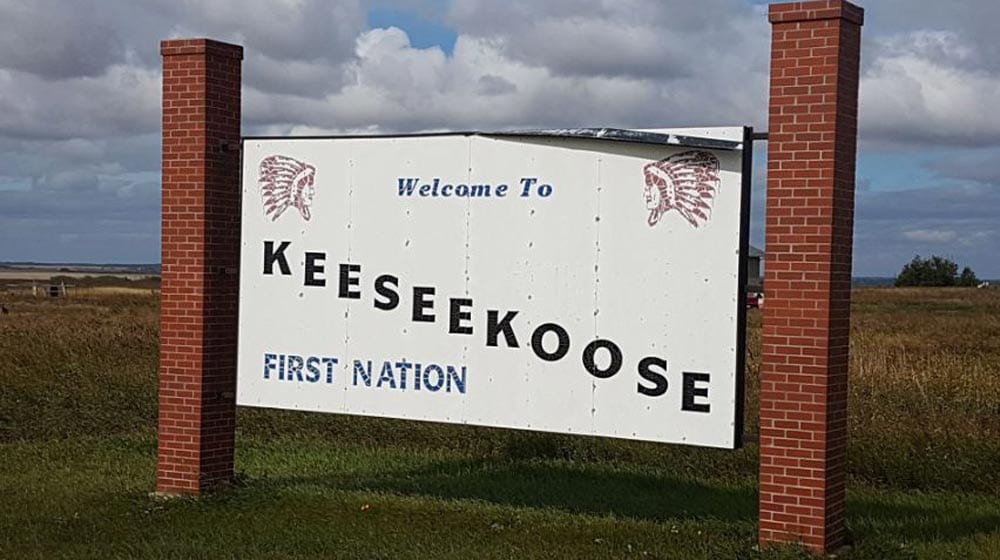
A welcome sign outside Keeseekoose First Nation in Saskatchewan. Photo: APTN file
The man accusing a former First Nation chief in Saskatchewan of historical sexual abuse is speaking out.
“I want my name out there,” said David Musqua, who spoke to APTN News via telephone.
“I want to be an advocate – especially for kids on reserve.”
A court document obtained by APTN shows former Keeseekoose First Nation chief Theodore [Ted] Quewezance, 70, was charged by the RCMP in Kamsack, Sask., on Aug. 14.
The document says the four counts are: “commit a sexual assault on David Musqua contrary to section 271 of the Criminal Code; for a sexual purpose touch David Musqua a young person under the age of 16 years contrary to section 151 of the Criminal Code; for a sexual purpose counsel, a person under the age of 16 years to touch directly with a part of his body, to wit his hand, the body of David Musqua, contrary to section 152 of the criminal code; being a person of trust did for a sexual purpose counsel, a person under the age of 16 years to touch directly with a part of his body, to wit his hand, the body of David Musqua contrary to section 153 of the Criminal Code.”
The document shows the alleged offences occurred between September 1997 and September 2004.
Read more: Former chief in Saskatchewan charged with historical sex offences
Quewezance has not yet appeared in court or entered a plea.
Musqua, 34, says he is the complainant in this case, noting he was 12 years old in 1997 and living in Keeseekoose, a Saulteaux community 285 km northeast of Regina.
“We were raised by our grandparents,” he said of he and his older brother, Alvin, who he said died by suicide in 2021.
Quewezance is a high-profile Indigenous politician and residential school survivor in Saskatchewan. He is a long-time member of the influential senate at the Federation of Sovereign Indigenous Nations (FSIN) in Saskatoon. And, he travelled to Rome in March 2022 as part of a delegation seeking an apology for the Catholic Church’s role in residential schools from Pope Francis.
FSIN did not respond to APTN’s requests for comment.
In June, Quewezance was appointed to the six-member Residential School Documents Advisory Committee at the National Centre for Truth and Reconciliation (NCTR) in Winnipeg. He was also a member of the NCTR Survivors Circle from 2017 to 2019, according to the NCTR website.
Request for comment
NCTR referred APTN’s request for comment to Crown-Indigenous Relations in Ottawa, which established the committee. In an email, department spokesperson Anispiragas Piragasanathar said, “Mr. Quewezance is no longer a member of the Documents Advisory Committee.”
Musqua says he informed the Saskatchewan Crown attorney prosecuting Quewezance that he doesn’t want a publication ban on his name. The prosecutor usually seeks a ban to protect the identities of complainants and victims in sexual assault cases.
In an emailed statement to APTN, the Crown said it “will not speak to the specifics of this case as it is before the court. The complainant is encouraged to reach out to the Prosecutor’s Office and speak with the assigned prosecutor.”
Musqua, in an emotional interview, says he is looking forward to his day in court.
“This is something I need to do,” he said, “for me, for my brother, for my son.”
Editor’s note: This story was updated on Oct. 19, 2023 with information from Indigenous Services Canada.









